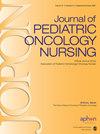Nurse–Patient Connectedness and Nurses’ Professional Quality of Life: Experiences of Volunteering at a Pediatric Oncology Camp
IF 1.9
3区 医学
Q2 NURSING
引用次数: 6
Abstract
Objective: Pediatric oncology nurses can experience burnout, vicarious traumatization, and compassion fatigue related to the unique stressors of their profession. Opportunities to enhance nurses’ professional commitment and nurse–patient connectedness may mitigate these stressors. This study explored the impact of volunteering at a local oncology camp on pediatric oncology nurses’ professional quality of life and connectedness with their oncology patients. Method and Sample: Pediatric oncology nurses from a single institution were invited to participate in this mixed methods study. Participants completed a survey assessing professional quality of life, professional commitment, and patient connectedness. Nurses who had oncology camp volunteer experience were invited to participate in a qualitative interview. Results: Compared with noncamp nurses (n = 23), camp nurses (n = 25) had increased odds of a low burnout score (odds ratio = 6.74, 95% confidence interval [1.10, 41.43], p = .039) and increased odds of a high compassion satisfaction score (odds ratio = 4.69, 95% confidence interval [1.14, 19.32], p = .033). Qualitative interviews supported the impact of volunteering at camp on nurses’ personal and professional perspective, nursing practice, and delivery of person-centered care. Conclusion: Volunteering at a pediatric oncology camp provided nurses the opportunity to engage with patients, share experiences, and view patients as individuals while still maintaining professional boundaries. Nurses who volunteer at camp described a perspective moving beyond patient-centered to person-centered care, and for some pediatric oncology nurses, camp volunteering may be a novel way to mitigate burnout and an important tool to enhance resiliency.护患关系和护士的职业生活质量:在儿科肿瘤夏令营志愿服务的经验
目的:儿科肿瘤科护士可能会经历与其职业独特压力源相关的倦怠、替代性创伤和同情疲劳。加强护士专业承诺和护患联系的机会可能会缓解这些压力。这项研究探讨了在当地肿瘤学营地做志愿者对儿科肿瘤学护士的专业生活质量以及与肿瘤学患者的联系的影响。方法和样本:来自单一机构的儿科肿瘤学护士被邀请参与这项混合方法研究。参与者完成了一项评估职业生活质量、职业承诺和患者联系的调查。有肿瘤营志愿者经验的护士被邀请参加一次定性访谈。结果:与非住院护士(n=23)相比,营地护士(n=25)低倦怠评分的几率增加(比值比=6.74,95%置信区间[1.1041.43],p=.039),高同情满意度评分的几率也增加(比值比=4.69,95%置信间隔[1.1419.32],p=.033),以及提供以人为本的护理。结论:儿科肿瘤营的志愿服务为护士提供了与患者接触、分享经验和将患者视为个体的机会,同时仍保持专业界限。在营地做志愿者的护士描述了一种从以患者为中心到以人为中心的护理的观点,对于一些儿科肿瘤学护士来说,营地志愿服务可能是缓解倦怠的一种新方法,也是增强复原力的重要工具。
本文章由计算机程序翻译,如有差异,请以英文原文为准。
求助全文
约1分钟内获得全文
求助全文
来源期刊
CiteScore
3.10
自引率
0.00%
发文量
0
审稿时长
>12 weeks
期刊介绍:
SPECIAL PATIENTS NEED SPECIAL NURSES
Caring for children with cancer is one of the most technically and emotionally difficult areas in nursing. Not only are you dealing with children and adolescents who hurt, you must reassure and educate families, balance a multitude of other health care professionals, and keep up with ever-changing nursing practice and care. To help special nurses stay aware of the newest effective nursing practices, innovative therapeutic approaches, significant information trends, and most practical research in hematology and pediatric oncology nursing, you need the Journal of Pediatric Oncology Nursing.
The journal offers pediatric hematology, oncology, and immunology nurses in clinical practice and research, pediatric social workers, epidemiologists, clinical psychologists, child life specialists and nursing educators the latest peer-reviewed original research and definitive reviews on the whole spectrum of nursing care of childhood cancers, including leukemias, solid tumors and lymphomas, and hematologic disorders. JOPON covers the entire disease process--diagnosis, treatment, recovery, and survival, as well as end-of-life care.
Six times a year, the Journal of Pediatric Oncology Nursing introduces new and useful nursing care practice and research from around the world that saves you time and effort. Just some of the spirited topics covered include:
Cancer survivorship including later-life effects of childhood cancer, including fertility, cardiac insufficiency, and pulmonary fibrosis
Combination therapies
Hematologic and immunologic topics
Holistic, family-centered supportive care
Improvement of quality of life for children and adolescents with cancer
Management of side effects from surgery, chemotherapy, and radiation
Management of specific symptoms/diseases/co-infections
Medication tolerance differences in children and adolescents
Pain control
Palliative and end of life care issues
Pharmacologic agents for pediatrics/clinical trial results
Psychological support for the patient, siblings, and families
The dynamic articles cover a wide range of specific nursing concerns, including:
Advanced practice issues
Clinical issues
Clinical proficiency
Conducting qualitative and quantitative research
Developing a core curriculum for pediatric hematology/oncology nursing
Encouraging active patient participation
Ethical issues
Evaluating outcomes
Professional development
Stress management and handling your own emotions
Other important features include Guest Editorials from experts in the discipline, Point/Counterpoint debates, Roadmaps (personal insights into the nursing experience), and Proceedings and Abstracts from the annual Association for Pediatric Hematology/Oncology Nurses (APHON) conference.
Your special patients need special nurses--stay special by subscribing to the Journal of Pediatric Oncology Nursing today!
This journal is a member of the Committee on Publication Ethics (COPE).

 求助内容:
求助内容: 应助结果提醒方式:
应助结果提醒方式:


